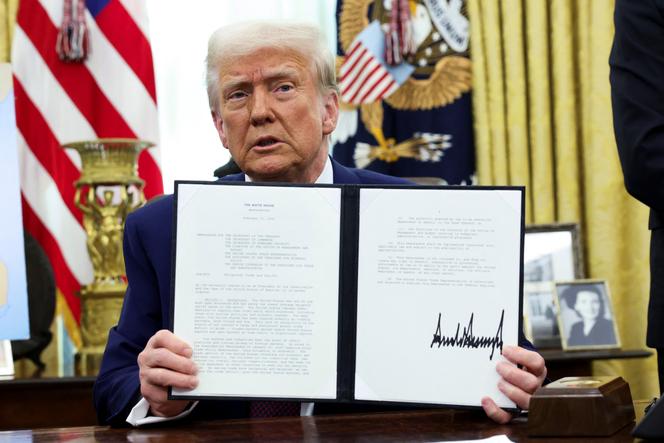


US President Donald Trump inked plans on Thursday, February 13, for sweeping "reciprocal tariffs" affecting both allies and competitors, in a dramatic escalation of an international trade war that economists warn could fuel inflation at home.
Speaking in the Oval Office, Trump said he had decided to impose the reciprocal duties, telling reporters that US allies were often "worse than our enemies" on trade issues, and complained that the European Union was "absolutely brutal" in its trade relations with the United States.
Trump has announced a broad range of tariffs targeting some of the biggest US trading partners since taking office, arguing that they would help tackle unfair practices – and in some cases using the threats to influence policy. The president has referred to tariffs as a way to raise revenue, remedy trade imbalances and pressure countries to act on US concerns.
The new levies would be tailored to each US trading partner and consider non-tariff factors including value-added tax (VAT).
"Major exporting nations of the world attack our markets with punishing tariffs and even more punishing non-tariff barriers," Trump trade advisor Peter Navarro told reporters, taking aim at the European Union in particular over VAT.
With the memo Trump signed on Thursday, the US Trade Representative, commerce secretary and other officials will work to propose remedies on a country-by-country basis.
Trump acknowledged that US prices "could go up" due to the tariffs, but he expressed confidence that they would ultimately ease.
Cost-of-living pressures were a key issue in the November election that saw Trump sweep to power, and the Republican has promised to swiftly reduce prices. Yet economists have cautioned that sweeping tariffs on US imports would likely boost inflation, not reduce it, in the near term and could weigh on growth eventually.
Trump's deputy chief of staff for policy Stephen Miller previously said countries use VAT to get an unfair trade advantage, although analysts have challenged this characterization.
During election campaigning, Trump promised: "An eye for an eye, a tariff for a tariff, same exact amount."
For example, if India imposes a 25% tariff on US autos, Washington will have a 25% tariff as well on imports of autos from India, explained a Nomura report this week. The consideration of non-tariff factors might shift this calculus.
"Trump's objective of implementing reciprocal tariffs is to ensure fair treatment for US exports, which could indirectly also address US trade imbalances with partner countries," analysts at Nomura said.
Analysts have warned that reciprocal duties could bring a broad tariff hike to emerging market economies such as India and Thailand, which tend to have higher effective tariff rates on US products. Countries such as South Korea that have trade deals with Washington are less at risk from this move, analysts believe.
Trump's announcement came hours before he was due to meet Indian Prime Minister Narendra Modi in Washington. Modi will hold talks with Trump on Thursday and New Delhi offered some quick tariff concessions ahead of his visit, including on high-end motorcycles.
Among Asian economies, India has a 9.5% weighted average effective tariff on US exports, while there is a 3% rate on India's exports to the United States. Thailand has a 6.2% rate and China a 7.1% rate on US products, Nomura noted.
